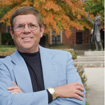Commentary on Matthew 24:36-44
Matthew 24:36-44 is part of a much larger passage, usually called the Olivet discourse, which discusses both events that transpired in the first century A.D. and those which as of yet have not come to pass.
Matthew 26:36-44, an appropriate text for the first Sunday in Advent, clearly falls in the latter category being a discussion of the return of Christ and the events that will accompany that return.
Matthew 26:36, which is the Matthean form of Mark 13:32, presents us with Jesus telling his disciples that neither angels, nor ordinary human beings, nor even he himself, know the timing of his Return or Second Coming. Only the Father knows such things. This should, of course, have put an end to theological weather forecasting about the timing of the second Advent, but alas, pious curiosity is always given to speculation. But there is a difference between having great expectations, trusting God’s word is true, and making calculations, or even prognostications, which involves the second order activity of human speculation. Jesus does not encourage the latter, whilst he certainly instills in his disciples the “Blessed Hope” that he will return one day to raise the quick and dead, as the creeds affirm.
Verses 37-38 draws an analogy suggesting that the days of Christ’s return will be rather like the days of Noah when the flood came. We may well ask, “How so?” Jesus is not returning to send a vast flood upon the earth. What the analogy is meant to convey is in each case, judgment came in the form of an event which caught the unprepared by surprise. More to the point, remembering the story of Noah, there were a host of sinful humans taken away, swept away by the flood, while Noah’s family was “left behind,” safe and sound on board the ark.
Likewise says Jesus, when he returns, many will be taken away in judgment, but some will be left behind. This analogy with the story of Noah makes perfectly clear that Jesus is not suggesting that those taken away are more fortunate than those “left behind.” To the contrary, those taken away are taken away from judgment, while those left behind are wiping their brows, thankful that they have survived “the Great and terrible Day of the Lord.”
There is no encouragement here for dispensational theologies about the rapture of the faithful, and the judgment of those left behind on the earth. To the contrary, the polarity of the saying “two will be in the field, one will be taken one left behind.” Two women will be grinding at the mill, one will be taken, one left behind is just the opposite of the dispensational reading of the text. The left behind are those blessed who have escaped the great judgment just as Noah’s family escaped the flood.
The prudential advice, based on the predictions in verses 36-41, then is that the faithful must stay vigilant and awake, knowing that Christ will return, though the timing remains unknown. The phrase “the day or hour,” or even just the phrase “the hour,” simply means the timing. It is not suggesting that the general time frame of Christ’s return can be known in advance, but that the specific day or hour is obscure.
Here, as is always the case, God reveals enough about the future to give us hope, but not so much that we do not have to live and walk by faith day after day. We have assurance about the things hoped for, and conviction about the things not yet seen, but what we do not have is a timetable in the Scriptures, nor would that have been very helpful to the faithful anyway. The person who knows for sure he will die in two days may well do all sorts of things out of character because he has a firm deadline before him and throws caution to the wind. Likewise, even a Christian person who knows Christ will certainly not return in his lifetime may well be tempted to throw caution and his morals to the wind.
The analogy of Christ’s return being like a thief in the night is an important one, and we find it also used elsewhere (e.g. 1 Thessalonians 5:2). The imagery itself implies an arrival at an unexpected or surprising time, hence the exhortation to stay awake. As verse 44 says, he will come at an unexpected time.
In the days before cell phones (B.C. as I like to call them), my grandparents used to call us up and tell us they were coming for a visit. Since they sometimes stopped various places along the way, we were not sure when they would arrive. This meant we had to always be awake and ready. It was the certainty of the coming, not the timing which motivated this behavior of being ready at any moment. So it is as well in the exhortation in Matthew 24:36-44.

November 28, 2010